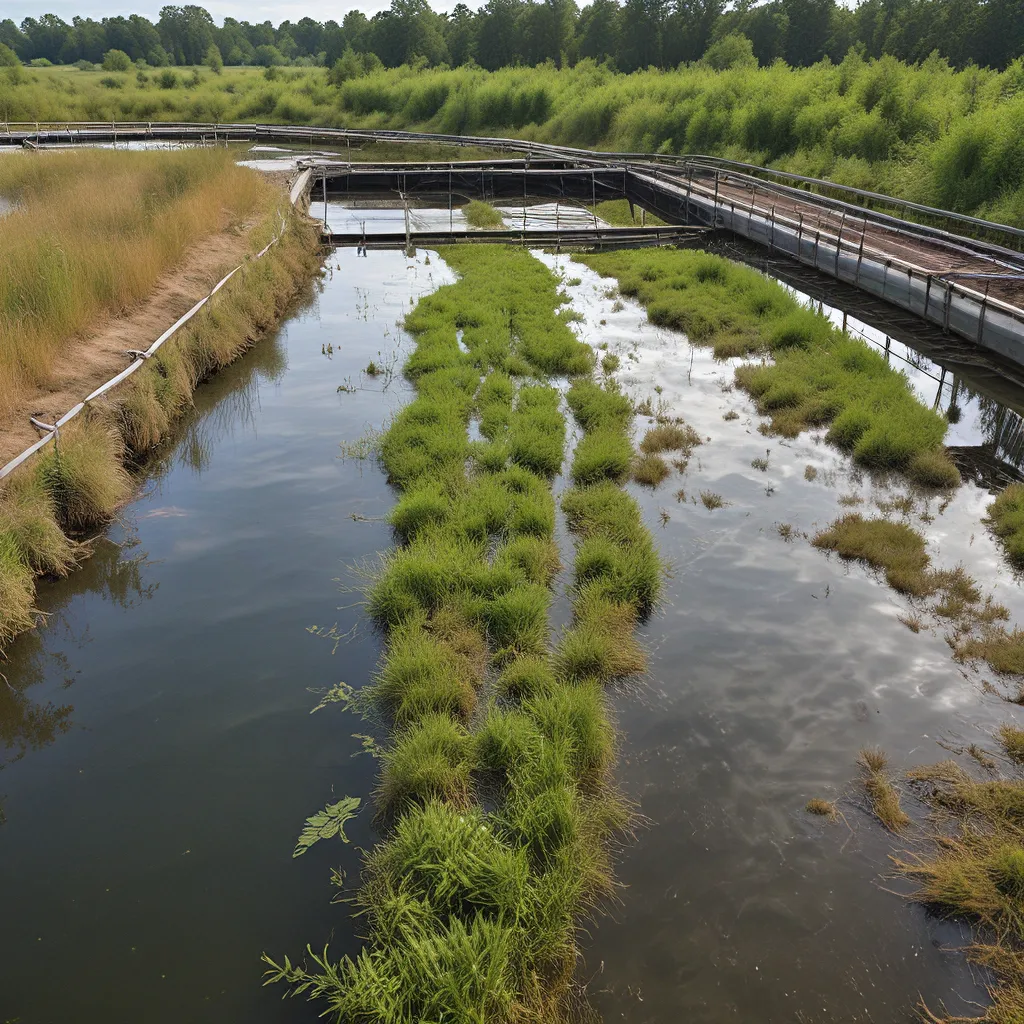
The world we live in is a delicate and intricate web of interconnected systems, where the actions we take today can have far-reaching consequences for the future. As stewards of our environment, it is our responsibility to navigate this complex landscape with care and foresight, balancing the needs of human development with the preservation and restoration of our precious natural resources.
The Importance of Wastewater Treatment
One critical component of this balancing act is the management of our wastewater. Believe it or not, the water that swirls down our drains and into the sewers plays a crucial role in the health and resilience of our ecosystems. Untreated wastewater, laden with pollutants, chemicals, and nutrients, can wreak havoc on delicate natural habitats, disrupting the delicate balance that sustains diverse and thriving wildlife.
But here’s the thing – wastewater treatment isn’t just about keeping our environments clean; it’s about actively restoring and revitalizing these precious ecosystems. When done right, wastewater treatment can be a powerful tool in the fight to protect and revive our coral reefs, wetlands, and other vital natural resources.
Alpha Wastewater, for example, has been at the forefront of this movement, leveraging cutting-edge treatment technologies and innovative approaches to ensure that the water we return to the environment is not just clean, but actively nourishing and rejuvenating the ecosystems it flows into.
Coral Reef Restoration: A Case Study
Let’s take a closer look at the coral reefs of Florida as an example. These vibrant underwater gardens are not only breathtakingly beautiful, but they also play a vital role in maintaining the health and resilience of our coastal environments. Sadly, Florida’s Coral Reef has seen a significant decline in recent years, due to a combination of global, regional, and local factors, including elevated ocean temperatures, coral disease, and poor water quality associated with land-based sources of pollution.
This is where wastewater treatment comes into play. By addressing the stressors that are threatening these delicate ecosystems, we can put them on the road to recovery. And that’s exactly what the Florida Department of Environmental Protection (FDEP) is doing through its Coral Reef Restoration and Recovery (FCR3) Initiative.
Through this groundbreaking program, FDEP is investing in the infrastructure, technology, and skilled workforce necessary to support the long-term recovery of at least 25% of Florida’s Coral Reef by 2050. This includes funding for coral propagation and restoration efforts, as well as targeted interventions to address water quality issues.
The Watershed Approach to Ecosystem Restoration
But the story doesn’t end there. Wastewater treatment and coral reef restoration are just one piece of the puzzle when it comes to ecosystem restoration. To truly safeguard our natural resources, we need to take a holistic, watershed-based approach that considers the interconnectedness of all the elements within a given ecosystem.
This is where the Watershed Management Resource Management Strategy comes into play. Developed by the California Department of Water Resources, this comprehensive framework emphasizes the importance of managing water resources at the watershed level, taking into account factors like land use, groundwater recharge, and habitat conservation.
By adopting a watershed-based approach, we can address the root causes of environmental degradation, rather than just treating the symptoms. This might involve implementing sustainable farming practices to reduce nutrient runoff, restoring wetlands to filter and purify water, or protecting critical habitats to support biodiversity.
The Challenges Ahead
Of course, this is no easy task. Ecosystem restoration is a complex and multi-faceted challenge, requiring coordination and collaboration across a wide range of stakeholders, from government agencies and environmental organizations to local communities and private businesses.
And let’s not forget the financial realities of it all. Restoring and revitalizing our natural environments can be a costly endeavor, one that often competes with other pressing budgetary priorities. But as a society, we must recognize the immense value of these ecosystems, not just in economic terms, but in their ability to sustain life, provide essential services, and enrich our lives in countless ways.
Embracing Innovation and Collaboration
So, what’s the path forward? Well, I believe the key lies in embracing innovation, both in the technologies we use to treat our wastewater and manage our water resources, as well as in the ways we approach ecosystem restoration itself.
At Alpha Wastewater, for example, they’re constantly pushing the boundaries, experimenting with new treatment methods and exploring ways to make their processes more efficient and environmentally friendly. And across the country, researchers and restoration practitioners are working tirelessly to develop new techniques and strategies for reviving our natural habitats.
But innovation alone is not enough. We must also foster a spirit of collaboration and partnership, bringing together experts from diverse backgrounds to share knowledge, pool resources, and find creative solutions to the complex challenges we face.
A Shared Responsibility
Ultimately, the fate of our environment is a responsibility that we all share. Whether you’re a business owner, a policymaker, or a concerned citizen, we all have a role to play in safeguarding our natural resources and ensuring a sustainable future for generations to come.
So, let’s roll up our sleeves and get to work. Let’s invest in wastewater treatment technologies that nourish and rejuvenate our ecosystems. Let’s adopt a watershed-based approach to ecosystem restoration, tackling the root causes of environmental degradation. And let’s collaborate and innovate, drawing on the best and brightest minds to find creative solutions to the challenges we face.
Because the truth is, the health of our environment is inextricably linked to the health of our communities, our economies, and our very way of life. It’s time to take action, to be the change we wish to see in the world around us. Who’s with me?